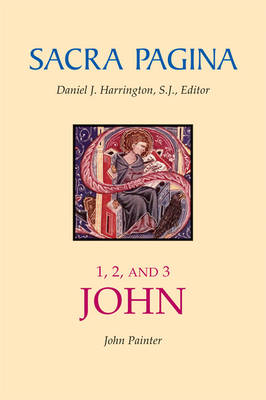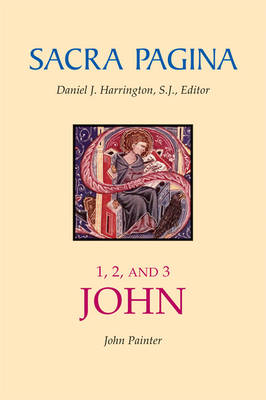
- Afhalen na 1 uur in een winkel met voorraad
- Gratis thuislevering in België vanaf € 30
- Ruim aanbod met 7 miljoen producten
- Afhalen na 1 uur in een winkel met voorraad
- Gratis thuislevering in België vanaf € 30
- Ruim aanbod met 7 miljoen producten
Omschrijving
The Johannine Epistles are today read as an important part of the Johannine literature. Yet the meaning of the text is often unclear. Part of the problem arises because, although 1 John is called an Epistle, it lacks the formal marks of an Epistle. In 1, 2, and 3 John, John Painter illuminates the relationship 1, 2, and 3 John have to each other and to the Gospel.
Painter explains the historical context of the Johannine Epistles using a socio-rhetorical approach. The writings are shown to reflect a situation of conflict and schism within the Johannine community; they seek to persuade the readers of the truth of the writer's message. In this truth, the readers are encouraged to abide if they would have the assurance of eternal life.
Painter also examines the inseparable connection between belief and ethical life in active love for one another. Through the socio-rhetorical approach Painter brings to light the continuing relevance of these writings.
1, 2, and 3 John is divided into two parts. Chapters under 1 John are "Introduction to the Exegesis of 1 John," "Outline of 1 John," "First Presentation of the Two Tests (1:6-2:27)," "Excursus: Sin and Sinlessness," "Excursus: Love of the Brother/Sister: of One Another," "Excursus: The Antichrist," "Second Presentation of the Two Tests (2:28-4:6)," "Third Presentation of the Two Tests (4:7-5:12)," "Conclusion (5:13-21), and " Excursus: 'A Sin Unto Death.'"
Chapters under 2 and 3 John are "2 John," "Introduction to the Exegesis of 2 John," "Outline of 2 John," "Prescripti 2 John 1-3," "Body of the Letter (4-11)," "Notice of Intention to Visit (12)," and "Final Greetings (13)," "3 John," "Introduction to the Exegesis of 3 John," "Outline of 3 John," "Prescript: 3 John 1-2," "Body of Letter (3-12)," and "Final Greetings (13-15)."
John Painter is the Foundation Professor of Theology at Charles Sturt University in Canberra, Australia.
Specificaties
Betrokkenen
- Auteur(s):
- Uitgeverij:
Inhoud
- Aantal bladzijden:
- 416
- Taal:
- Engels
- Reeks:
- Reeksnummer:
- nr. 15
Eigenschappen
- Productcode (EAN):
- 9780814659731
- Verschijningsdatum:
- 1/10/2008
- Uitvoering:
- Paperback
- Formaat:
- Trade paperback (VS)
- Afmetingen:
- 154 mm x 226 mm
- Gewicht:
- 580 g

Alleen bij Standaard Boekhandel
Beoordelingen
We publiceren alleen reviews die voldoen aan de voorwaarden voor reviews. Bekijk onze voorwaarden voor reviews.











